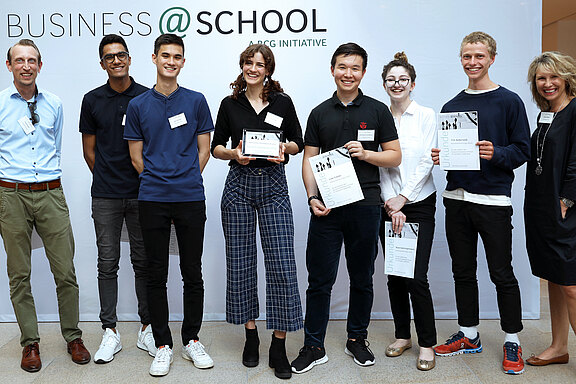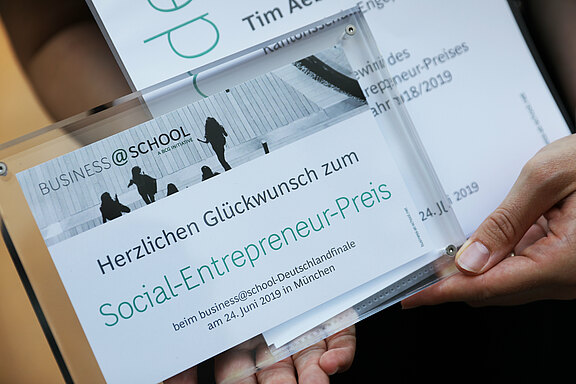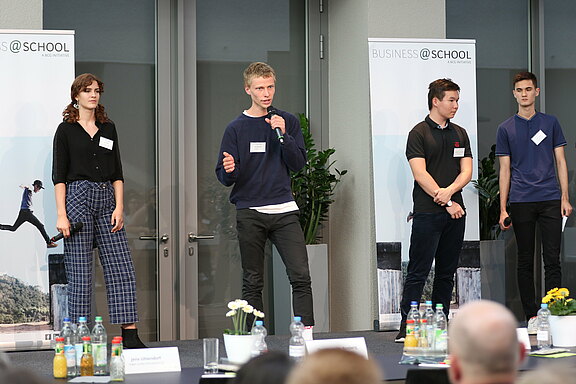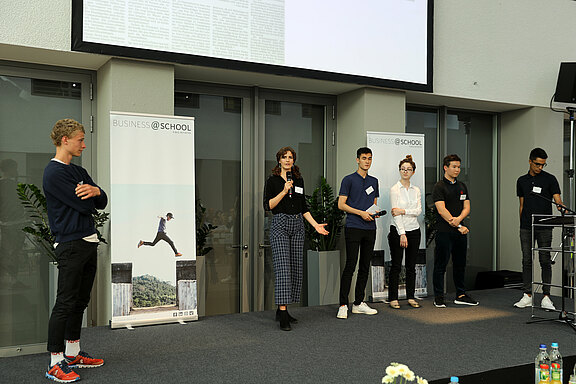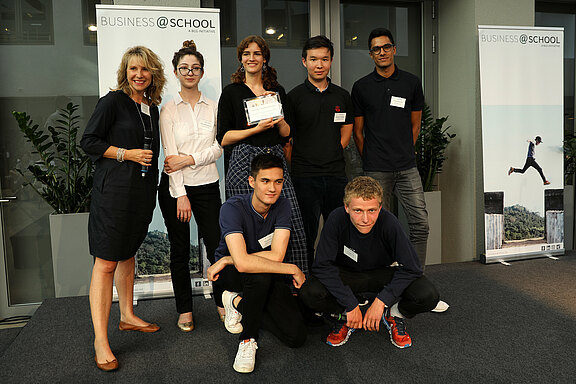Social Entrepreneur Award 2019
Can a social idea become a business model? Yes, it can! The six-person team from the Kantonsschule Enge school from Zurich shows how. The 18- and 19-year-olds want to live in a more environmentally friendly way, says Reto Simonet. So it didn’t take long for us to find our business idea. “We had to slow them down more than we had to motivate them. They knew just what they wanted right from the get-go. And it's this very generation that needs to find a solution for the CO₂ problem,” says teacher Sandra Weber enthusiastically.
How your CO₂ footprint disappears
But just how does compensate work? When checking out for your online purchase, the retailer asks if the buyer wants to compensate for the CO₂ pollution caused by the purchase. If the buyer decides “Yes, I want to neutralize the carbon footprint of my purchase,” a small compensation fee will be added—0.5–4% of the value of the purchase. That amount will be transferred to Southpole and other leading providers of global sustainability solutions who use the money for environmental projects that bind or save CO₂, like reforestations, solar roofs, efficient cooking stoves, or landfill biogas projects.
The amount of the compensation fee is determined individually by the team via access to various databases such as ecoinvent. This enables it to calculate the compensation fees for all its partners’ products.
Laudatory speaker Alexander Baic (BCG) was impressed: “The students took up a very current topic and ingeniously showed how to combine a social idea with a business! Anyone who’s that professional has a good chance of finding partners.”
But first for the team itself, the next school year will see them taking their A-levels. The six students are thinking seriously about implementing their idea, however. “We want to first pitch the idea in a few different places and see how our idea’s received. And then get it certified quickly,” says Line, looking to the future.
The Swiss team doesn't just want to scale up their idea. More importantly, says Tim, we want to set and example that as many large online stores as possible will follow, to increase awareness for the environment. We say, bravo!
